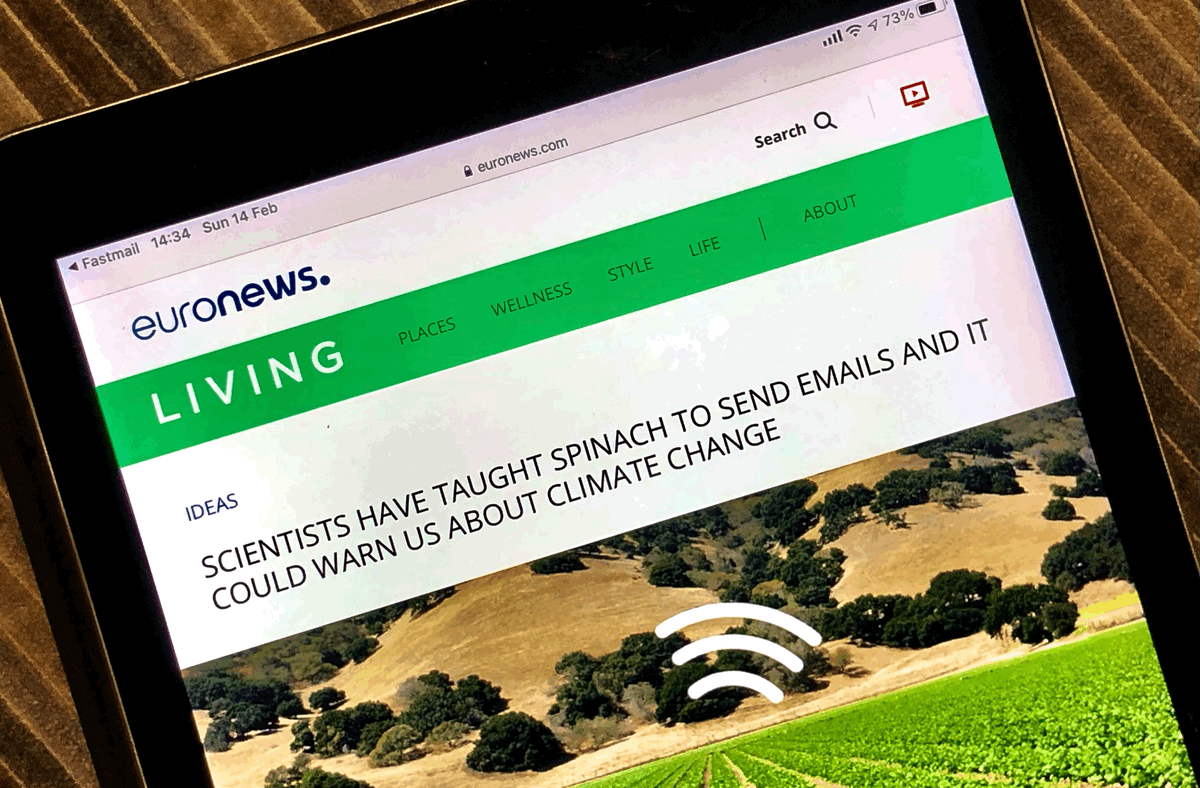The skill of making emailing spinach go viral
Don't assume every viral story is an accident: you can learn to maximise your chances of it happening.

Do you remember this story about emailing spinach that went viral for a few days?

This piece indeed went viral, but not unexpectedly so. The author of the piece, Marthe de Ferrer, has written about the experience and the planning of it in her new newsletter: Let's Get Social.

And what's fascinating in her account is the degree to which people both judged the whole article by the headline, but also the way that they assumed the fact it went viral was an accident:
One person in the publisher’s comms team tweeted that she felt sorry for me as I was most likely underpaid and stressed, which is why I chose that headline. Much as I love public patronising speculation about my salary and mental wellbeing, we chose that headline as a team because we know what works. We know how to sell a heavy science-based story to a non-specialist readership. And, clearly, we know how to do it well.
The assumption that every newsroom is full of isolated, under-paid publishing peons is a troubling one. Yes, it has roots in the reality of some newsrooms, but it's far from universal. And, clearly, the Euronews team are doing a great job of both:
- Thinking of how to sell a story
- Doing that collaboratively
Selling a story as an editorial team
Back to Marthe:
Much as I would like to take sole credit for this entire affair, every headline we craft at my main work (shout out again to Euronews Living + Travel) is a joint effort.
And, given that last year I delivered an SEO course for the team Marthe is part of, this paragraph made me happy:
We forensically consider the SEO potential, and we know what we’re doing. So when someone emailed me on Wednesday to ask if I realised that I had “accidentally gone viral”, I wasn’t overly impressed that they thought I didn’t know and that the entire event was random blind luck.
Of course, nobody can guarantee that something will go viral. But putting the time in to think through both where and how you can bring attention to your journalism is always time well-spent:
- Is it an answer to a problem or question people will search for?
- Is it something that people will respond to with an emotional reaction, and so a good candidate for social?
- If not, can you find other ways of selling it via newsletters or homepage placement?
A good rule of thumb for internet publishing is (to misquote an old film): Build it — and they will not come.
Winning your share of attention
In an attention-poor environment, publishing alone is not enough. Understanding how to bring attention to a story is critical, otherwise all your work is just so many electrons on a server somewhere. People are quick to throw the “clickbait” label on any catchy headline, but that's unfair. Clickbait is a headline which over-promises and under-delivers in a deceptive way.
There's an equal and opposite crime: writing headlines so very boring that nobody finds or reads the fascinating reporting underneath it. Learning to walk the line between the two is a critical skill for online journalism.







